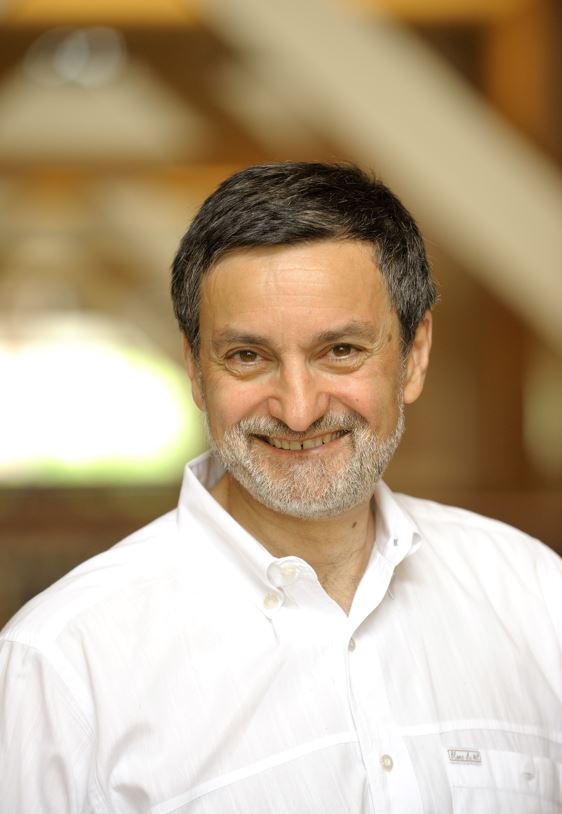Article
Editor's note: See our Director's Seminar webpage for upcoming speakers, topics, and videos of past lectures.
Gabriele Gratton, professor in the Department of Psychology, will speak at the Beckman Institute's virtual Director's Seminar at noon Thursday, Nov. 4. Gratton will be discussing "Diffuse optical imaging of the human brain." Registration is required to attend on Zoom.
 Gabriele GrattonDiffuse optical imaging is a tool for studying intrinsic optical properties of deep tissues, such as the human brain, in a non-invasive manner. Signals that can be observed relate to changes in tissue transparency (related to both absorption and scattering) that may occur slowly over the years, as a result of brain atrophy in aging, but also very rapidly as a function of changes in brain hemodynamics, arterial pulsation, but also neural activity and brain oscillatory activity. In particular, Gratton's lab has provided critical advancement in the measurement of the arterial pulse and of fast neural activity.
Gabriele GrattonDiffuse optical imaging is a tool for studying intrinsic optical properties of deep tissues, such as the human brain, in a non-invasive manner. Signals that can be observed relate to changes in tissue transparency (related to both absorption and scattering) that may occur slowly over the years, as a result of brain atrophy in aging, but also very rapidly as a function of changes in brain hemodynamics, arterial pulsation, but also neural activity and brain oscillatory activity. In particular, Gratton's lab has provided critical advancement in the measurement of the arterial pulse and of fast neural activity.
In this seminar, Gratton will focus on the latter type of signal and on the type of functional brain measures that can be obtained with diffuse fast optical signals. Specifically, this research demonstrates that diffuse optical imaging can provide measures of brain function combining high spatial and temporal resolution, allowing researchers to analyze the spread of neural activity during the processing of external stimuli and in preparation for motor activity. In particular, examples will be presented of the application of these measures to the study of the brain processes associated with many psychological processes, including selective attention, perceptual categorization, language processing, sensory and working memory, conscious perception and awareness, task switching and cognitive control.
Speaker biography
Gabriele Gratton received his M.D. degree from the University of Rome in 1980, and a Ph.D. in psychology at the University of Illinois Urbana-Champaign in 1991. He has been a professor of psychology at the University of Illinois and an active member of Beckman Institute's Cognitive Neuroscience Groups since 2001.
His research has centered on the application of various neuroimaging and electrophysiological technologies to the understanding of brain function and in particular the organization of cognitive processes and their control, with a particular attention to changes occurring with aging. He has received several prizes and distinctions during his career, including the Award for Early Career Contribution and subsequently a Lifetime Achievement Award from the Society for Psychophysiological Research, of which he has been President in 2010.
Beckman Institute for Advanced Science and Technology